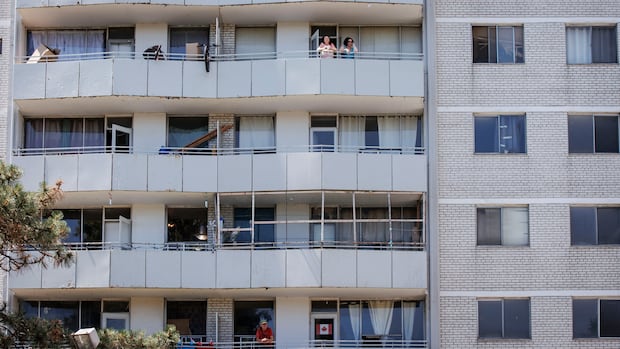TorontoOntario stepped back on consultations for a proposal that could have ended rent control, indefinite leases and given landlords more power after calls for reconsideration by politicians and housing advocates. Housing minister says province will focus on ‘common sense reforms’ to strengthen rental marketArrthy Thayaparan · CBC News · Posted: Oct 27, 2025 7:13 AM EDT | Last Updated: 41 minutes agoListen to this articleEstimated 3 minutesRenters and advocates rallied together after the introduction of a proposal to change the tenancy lease framework for fear it could hurt long-term tenants and vulnerable renters, such as seniors and students, across Ontario. (Evan Mitsui/CBC)Renters in Ontario can finally sigh in relief after the province stepped back on considerations of a proposal that may have ended rent control and indefinite leases in the future. Last week, Premier Doug Ford’s government introduced a new housing bill and plan for the future, which included a proposal for consultations for an alternative option to lease expiry rules “that could allow landlords to control who occupies their unit and for how long,” depending on terms such as market conditions and personal needs. After push back by politicians, housing advocates and renters across the province, Ontario’s Minister of Housing Rob Flack posted on social media Sunday that the government would not proceed with consultations “on potential changes to Ontario’s tenancy lease framework.”He said the province would continue to push forward with “common sense reforms” to strengthen the rental market.“Residents expect stability and predictability in Ontario’s rental market, and now is not the time to consider changes to this system,” said Flack.“Ontario will continue … by restoring balance at the Landlord and Tenant Board (LTB), cracking down on abuse of the system, and encouraging new rental construction to make it easier for families to find a place to call home.”WATCH | How ‘financial landlords’ have impacted the affordability crisis:How much are ‘financial landlords’ driving up Toronto rents?A new report is shining a light on a decades-long problem in Toronto: so-called ‘financial landlords’ and their effect on Toronto’s rental market. CBC’s Chris Glover digs into the data to find out why they are worsening the affordability crisis. Renters and advocates rallied together last week after the proposal’s introduction for fear that it could hurt long-term tenants and vulnerable renters, such as seniors and students, across Ontario.Toronto Mayor Olivia Chow also took to social media to share her relief at the province’s reconsideration to change tenants’ “security of tenure” rights. Currently, renters are protected by what’s called “security of tenure,” which gives them the right to remain in a rental unit as long as they follow the lease agreement and residential tenancies act. It also allows tenants to continue on a month-to-month rental basis after a fixed-term lease ends. Landlords are unable to evict tenants without a legally valid reason.Chow said such a change would have been “catastrophic for the 50 per cent of Torontonians who rent” and a large victory for corporate landlords. According to 2021 census data by Statistics Canada, 48 per cent of Toronto’s population rent their homes. “The credit goes to the tenant organizations who have made renters’ voices heard,” she said. “People deserve a safe, secure and affordable roof over their heads.”Chow added that the rest of Bill 60 “includes an erosion of renter’s rights at the LTB, as well as less compensation for a tenant evicted through no fault of their own.” She said the province should “scrap those changes” to bring back rent control for all units, including those built after 2018, and strengthen renters’ rights.ABOUT THE AUTHORArrthy Thayaparan is a Toronto-based multimedia journalist. She’s interested in health, climate and community stories. She has previously worked at Reuters and CBC Vancouver. You can contact her at arrthy.thayaparan@cbc.ca.
Wednesday, 4 Feb 2026
Canada – The Illusion
Search
Have an existing account?
Sign In
© 2022 Foxiz News Network. Ruby Design Company. All Rights Reserved.
You May also Like
- More News:
- history
- Standing Bear Network
- John Gonzalez
- ᐊᔭᐦᑊ ayahp — It happened
- Creation
- Beneath the Water
- Olympic gold medal
- Jim Thorpe
- type O blood
- the bringer of life
- Raven
- Wás’agi
- NoiseCat
- 'Sugarcane'
- The rivers still sing
- ᑲᓂᐸᐏᐟ ᒪᐢᑿ
- ᐅᑳᐤ okâw — We remember
- ᐊᓂᓈᐯᐃᐧᐣ aninâpêwin — Truth
- This is what it means to be human.
- Nokoma











